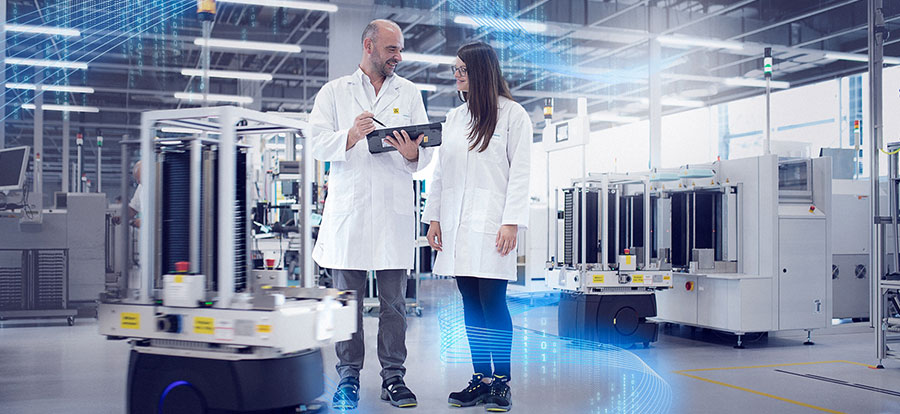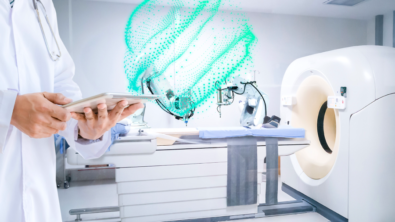Start on the road to advanced manufacturing in the medical device industry

Siemens Digital Industries Software partnered with the Medical Device Innovation Consortium to create a digitalization roadmap to guide medical device companies through the journey of advanced manufacturing. Advanced manufacturing is the competitive advantage every medical device company needs. The importance of advanced manufacturing has never been greater for the industry. The need for flexible and agile processes that adapt to the ever-changing demand is evident.
Let’s look at how companies can benefit from advanced manufacturing.
Enabling technology through digital twins
Regardless of company size or product complexity, every medical device manufacturer can benefit from advanced manufacturing technologies, such as a digital twin. A digital twin is a digital model of assets utilized for design production and performance. Using more than one digital twin can improve different product lifecycle areas from design to the physical product. The different types of digital twins include:
- Product. The product digital twin has many purposes, such as integrated associative design, simulations, assembly, integration, and regulatory verification and certification.
- Production. The production digital twin directly supports functional areas, such as production planning, production engineering and production execution.
- Performance. The performance digital twin or the Industrial Internet of Things (IIoT) allows for product performance monitoring, predictive maintenance and predictive end-of-life.
Although there are multiple digital twins, they all use the same underlying data, which is managed by a central database. Each digital twin builds on and provides feedback to the others. The different types of digital twins form one cohesive main digital twin, so everything is synced. The digital twin helps reduce the time and cost of developing and manufacturing products by enabling better designs and reducing product costs.
Adopting advanced manufacturing techniques
Not all medical device companies are in the same place to implement advanced manufacturing. Some companies may have not even started the process. Some have adapted them to varying degrees. The medical device industry has a tradition of producing reliable and safe products in a conservative and cautious environment. When it comes to change, this industry can be slower to adopt digital technology.
So, what is the path forward? Moving forward toward better manufacturing processes for medical devices requires rethinking the overall strategy around product development and manufacturing processes. Companies need to reevaluate their tool landscape for their existing practices in product development, quality and regulatory compliance. The first step starts with a transformation strategy that analyzes the organization’s key value drivers to perfect the digital threads. The strategy must be supported by metrics that allow benchmarking and should produce clearly defined initiatives for change.
In conclusion, advanced manufacturing can help companies meet patient needs with an accelerated introduction, personalized devices, and improved diagnostics and treatment. Now is the time to embrace advanced manufacturing technologies as an opportunity to improve quality, reduce costs, speed up product introduction and exceed regulatory standards.
Learn how to digitally transform product design and manufacturing practices to leverage advanced manufacturing technologies here.


